According to the Vietnamese Enterprise White Paper 2020, by the end of 2018, non-state enterprises attracted VND22.25 millions of billion dong in capital, accounting for 57.2% of the capital of the entire enterprise sector, while the state-owned enterprises lured VND9.65 millions of billion dong, accounting for 24.8% of the total capital.
The non-state business sector in 2018 had the highest total net revenue with VND13.41 millions of billion dong, accounting for 56.7% of net revenue of the entire business sector. Both figures are significantly higher than those of the state-owned enterprises with VND3.41 millions of billion dong , accounting for 14.4%.
The non-state business sector is the only sector that generates an increase in pre-tax profit compared to 2017 with VND323.64 trillion, accounting for 36.1% of the profit of the entire business sector. These indicators are much higher than those of the state-owned enterprises, which was VND190.36 trillion, accounting for 21.3%.
Through many ups and downs, the private sector has been recognized as an "important driving force for economic development". This sector currently accounts for 42% of GDP and this figure is expected to reach about 50% of GDP in 2020, about 55% of GDP in 2025, about 60 - 65% of GDP by 2030.
These are the targets set by Resolution No. 10-NQ/TW dated June 3, 2017 on "The development of the private economy to become an important driving force of the socialist-oriented market economy" – the resolution that is considered a Central Economic Committee’s landmark for the development of the private economic sector.
At the 70th anniversary of the establishment of the Central Economic Committee on September 30, Mr. Nguyen Van Binh, Head of the Committee said that the Party General Secretary and President Nguyen Phu Trong directly decided to choose the number 10 for the Resolution, with the expectation that the entire Party, the entire people and the entire army will strive to bring this resolution to life, creating a strong breakthrough as the previous Resolution 10 dated April 15, 1988 on renovation of agricultural management.
Imprints of renovation
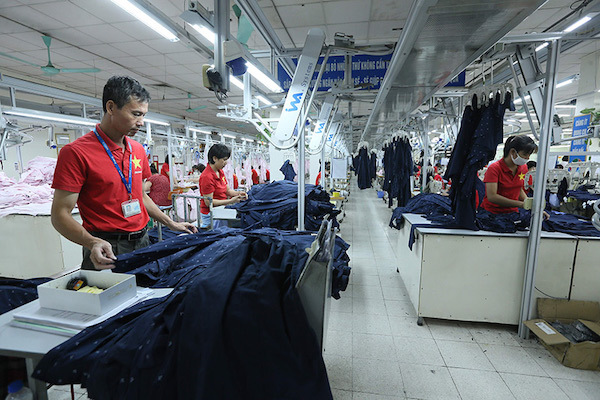 |
|
|
Seventy years ago, on September 30, 1950, the 1st Party Standing Committee issued Resolution No. 57-QN/TW on the establishment of the Central Economic Committee, which is responsible for researching, advising and proposing guidelines, policies, and major projects of the Party on economics and finance to help the central government’s leadership in economy and finance.
Since then, the Central Economic Committee has made clear impression in the ups and downs of history. The committee gave advice for the issuance of Directive No. 100-CT/TW dated January 13, 1981 on improving the work of product contracting to groups of workers and workers in agricultural cooperatives. This was considered a major breakthrough and unprecedented thinking in the system of socialist countries at that time.
Later, the Central Economic Committee proactively proposed to the Politburo to issue Resolution No. 10-NQ/TW on the innovation of agricultural economic management in 1988. This is the result of the proactive research process and innovation, an important milestone for the Party's renovation of the socio-economic development path. This resolution is always mentioned by the people with sincere feelings with the name "Contract 10".
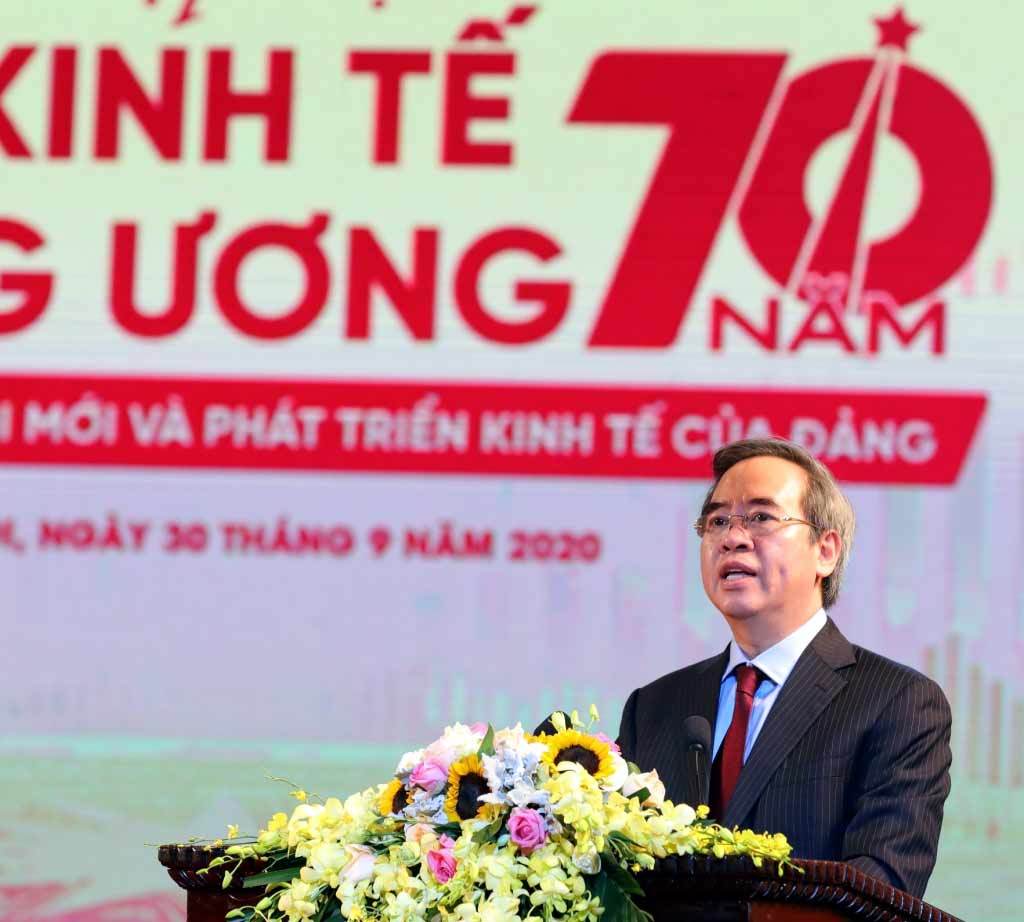 |
|
Mr. Nguyen Van Binh, a Politburo member, Secretary of the Party Central Committee, Head of the Central Economic Committee.
|
At the 6th National Party Congress, the Party initiated the cause of economic reform, production development, the contracting policy in agriculture, abolishing the regime of subsidies, promoting freedom of circulation and regulation of food supply and demand nationwide, initially forming a multi-component commodity economy, operating under the State-controlled market mechanism.
Innovation is a difficult process, a revolution in thinking and action. One of the most important requirements in the Party's economic leadership is to reform to suit the practical situation of each revolutionary period, especially in the economic field.
The period of market turbulence
Former Head of the Central Economic Committee Vu Oanh said that he had a deep memory when he was directly assigned to participate in researching, advising the Party Central Committee to reform economic management mechanism in agriculture, with the issuance of Directive No. 100 on "Contracting in agricultural products" of the Party Secretariat and then the issuance of Resolution No. 10 of the Politburo as the outcome.
"This is a process of extremely arduous and fierce struggle between stagnant conservative thought with innovative thinking; on the way to success, there were many obstacles. Perhaps this was the hardest, most arduous task in my life," he said.
Economist Tran Duc Nguyen said that at that time, there were very old-fashioned views like the state had to manage everything, but the situation was very dangerous and the only way was to go from the reality of life.
Prof. Ta Ngoc Tan said that at that time it was the popular viewpoint that socialism had only one method, only one ownership component - public ownership, and private ownership associated with the production of goods was not accepted.
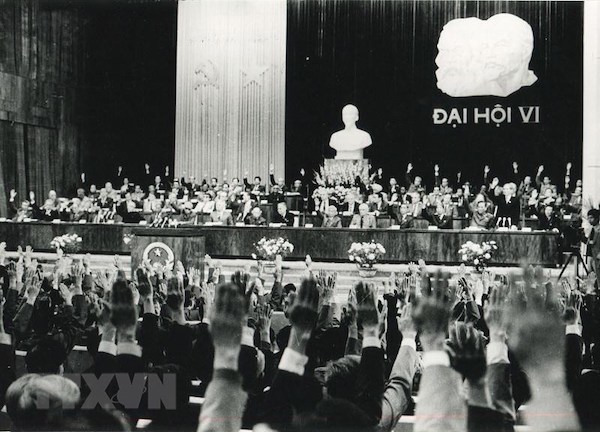 |
|
The 6th Party Congress opened the renovation cause, arousing and promoting the potential strength of the country. Photo: VNA
|
The form of product contract immediately promoted efficiency and helped people to develop production. That fact convinced the opposing view at that time. Directive 100 was quickly drawn up and approved by the Secretariat on November 13, 1981.
In 1986, the market was chaotic after 2 wage reforms: inflation exceeded 700%, raw materials were exhausted while the annual increase in contract continued to weigh on farmers again, forcing them to leave the fields. The economy continued to fall into crisis, the centralized mechanism related to subsidies was still applied in cooperatives, where cooperative members produced rice but the rice was distributed by their cooperative.
Therefore, it can be said that Directive 100 and Resolution 10 contributed to abolishing the mechanism of centralization, bureaucracy and subsidies to implement a new one, opening up a new chance for agricultural production. The Party's new economic policy is the premise for creating confidence and driving force for the process of successful renewal of the country's socio-economic management mechanism later.
Documents of the 6th National Party Congress with important changes like the acceptance of the existence of non-state and collective economic sectors, and the change of the management mechanism from a centralized bureaucracy to the economy based on monetary goods relations.
In 1991, the collapse of the Soviet Union that was the peak in the chain of consecutive collapses of Eastern European socialist countries put Vietnam in a difficult situation with risks of socio-economic instability. The 7th Party Congress held in June adopted a strategy to stabilize and develop the socio-economic development up to 2000 with drastic economic promotion measures. From 1991 to 2000, the gross domestic product increased continuously over the years with an average annual growth rate of 7.56% when the management and operation became consistent with the market management; hyperinflation was pushed back.
 |
|
Directive 100 and Resolution 10 helped make breakthroughs in abolishing centralization, bureaucracy and subsidy mechanism to implement a new mechanism, opening a new situation for agricultural production. Photo: VNA
|
Continuous renovation is required
Mr. Nguyen Van Binh affirmed that the practical and effective contributions of the Central Economic Committee in the past have created a solid foundation for the Central Party Committee, the Politburo, and the Secretariat to re-establish the Central Economic Committee on December 28, 2012.
During the 12th term of the Party Congress, many socio-economic policies have played a fundamental role for the long-term development of the country until 2030, with a vision to 2045, such as the resolutions on: perfecting the socialist-oriented market economic institution; developing the private economic sector; reforming and restructuring state-owned enterprises; land policy; national energy development strategy; development of agriculture, farmers and rural areas; proactively responding to climate change, enhancing natural resource management and environmental protection ...
However, the coming stage of economic development requires comprehensive and synchronous promotion of innovation and deep international integration. Besides opportunities and advantages, there are also many challenges and difficulties.
That situation poses a higher requirement and a heavier task for the Central Economic Committee in researching, advising, proposing to build, institutionalize, and implement the policy of the Party on socio-economic development.
The Party Secretariat’s standing member Tran Quoc Vuong said that the world and domestic situation is experiencing many developments beyond normal forecasts, in which the economic field is the fastest and most profound changing sector. Without constant innovation, it is impossible to keep up with that change of situation.
Therefore, the Central Economic Committee needs to proactively and constantly innovate thinking, boldly discover and propose new issues, on the basis of maintaining principles, ideological consistency, national independence and socialism. To better carry out socio-economic research and forecasts, closely monitor the world situation, the country's reality to further improve the quality of advisory and evaluation to the Party Central Committee, the Politburo and the Secretariat on major and strategic issues in socio-economic development.
“The Central Economic Committee must really be one of the Party and State’s centers on intellectual gathering, cooperation with domestic and foreign experts to contribute to the renovation and socio-economic development of our country," Mr. Vuong said.
Lan Anh
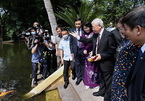
The people and the ruling party's measure of value
"In all works of the Party and State, the people are always defined as the root," Party Chief and President Nguyen Phu Trong wrote in his article about the work that needs to be done for the 13th National Party Congress.
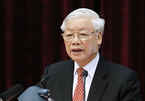
Prepare and organize the National Party Congress well, bring the country into a new stage of development
VietNamNet would like to introduce an article by Party General Secretary and President Nguyen Phu Trong, entitled “Prepare and organize the National Party Congress well, bring the country into a new stage of development".